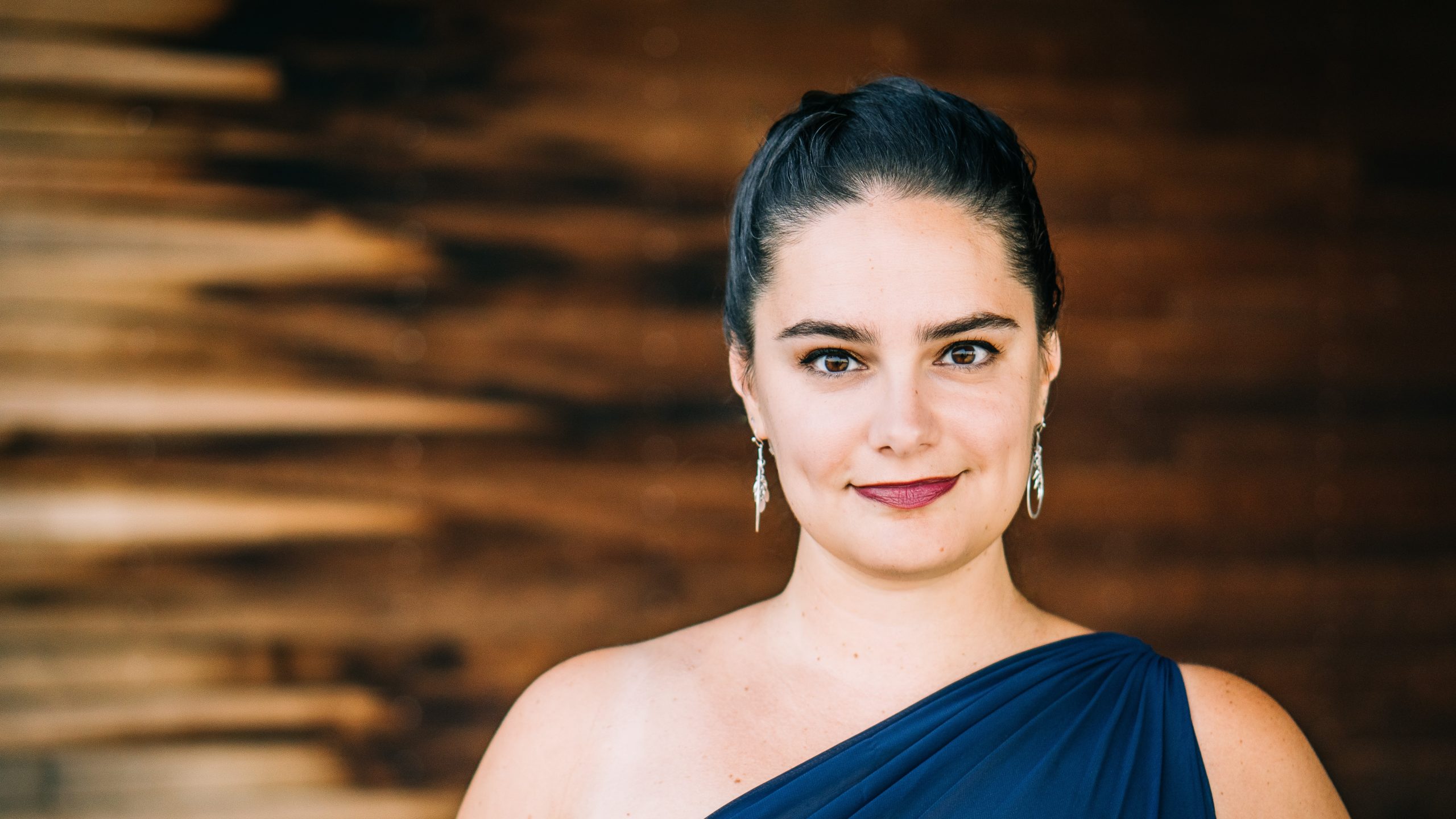Alumni Spotlights – Claire Galloway Weber
Claire Galloway Weber, (she/her)
(MM ‘15, voice)
Soprano, Educator, Somatic Coach
 An active freelance soprano and faculty member at Peabody Conservatory and Bard College, Ms. Galloway leads a varied career centered around communication and connection. A co-founder of the Somatic Song Institute in Laguna Beach, CA, she also leads Somatic Singer workshops which focus on practices to help musicians connect to their body, breath, more deeply understand their nervous systems, and find their authentic voice. An avid linguist, she has been teaching diction courses online and at the university level, while also programming and performing her own unique recitals. She has performed many private recitals, was a recent Nordic Song Festival Fellow in Sweden, a Songfest Brown Loranger Fellow, Ravinia Steans Music Institute Fellow, and is a long-time featured artist of Baltimore Musicales.
An active freelance soprano and faculty member at Peabody Conservatory and Bard College, Ms. Galloway leads a varied career centered around communication and connection. A co-founder of the Somatic Song Institute in Laguna Beach, CA, she also leads Somatic Singer workshops which focus on practices to help musicians connect to their body, breath, more deeply understand their nervous systems, and find their authentic voice. An avid linguist, she has been teaching diction courses online and at the university level, while also programming and performing her own unique recitals. She has performed many private recitals, was a recent Nordic Song Festival Fellow in Sweden, a Songfest Brown Loranger Fellow, Ravinia Steans Music Institute Fellow, and is a long-time featured artist of Baltimore Musicales.
Tell us about your journey to your current career path. What were the pivotal moments? What surprised you?
Like many artists, my journey has included many twists and turns. I find the pivotal moments have seemed the most confusing in the moment – and have often led to the beautiful diversity of my current career. One of the first was my voice teacher post-college encouraging me to explore fields outside of music which led to a degree in French Education and a journey to France, where I realized I wanted to pursue music as a primary career. Since then, what seemed like failures in the moment have led to me taking more risks in trusting myself in performing and storytelling.
What opportunities did you take advantage of in school that helped you to build helpful skills and experiences?
Following lines of curiosity to their ends allowed for some incredible learning journeys. If something came up in class, I would go to the library and dive down the rabbit hole along with friends and classmates. I also certainly benefitted from the career office’s job listings, finding my first church job and a few other initial starting points that began to grow my network. Truthfully, though, the most influential part of my studies were my colleagues and collaborating with them. Together we saw the gaps in opportunities available and created our own, researching how the existing faculty and structure might be able to help us in those ventures. This has formed the foundation of how I approach my career in this environment.
How do you share your work with colleagues, collaborators, and audiences using media and work samples?
One of my favorite journeys in social media has been a series I offer on Instagram called Technique Tuesdays. Each week I share something technique, performing, somatic related in a clip up to 1 and a half minutes long. It started out as sharing a technical tool from my teacher with a friend and posting it in stories as an experiment – knowing it was temporary and would disappear after 24 hours. People seemed to enjoy them and began to ask for me to share them in a more permanent location. Over time they’ve become a great way to connect with followers, meet with other voice teachers and performers, and have brought in new students and clients to my studio.
How has your network and/or community impacted your professional journey?
Without question, the community in music, and in life, has been the reason to keep going. In every connection there is a source of new ideas, new projects and collaborations, support, commiseration, the thrill of brainstorming, and so much potential within a world that often seems closed off and isolated. Especially throughout the pandemic, the singing world began to come together to talk about the state of the industry, to connect with each other over the things we care about and consider as guiding purpose for staying in a challenging career, and that is a spirit I have tried to embody and celebrate my whole career. Without each other, there are no stories, there is no music, and life is solitary.
Have your goals and priorities changed over time? If so, how?
Yes, without a doubt. For a long time, the path that was painted was getting into a young artist program, finding an agent, performing in regional opera houses, and eventually, if I was lucky, ending up at the Met or La Scala. The alternative, though similar, was to go to Germany and try my luck in Europe – which always appealed to me as a linguist. Because I started graduate school in my late twenties, I came out into a world that had already closed doors to me due to my age. I began to realize that young artist programs meant moving every year or more frequently. I also began to realize that opera contracts meant constantly being on the move, constantly auditioning, constantly shifting to the next project without much time for reflection or closure. I’ve started to focus more on deepening connections within my networks, pursuing things that bring my deep joy or growth, and finding things that allow me to have a more stable undercurrent to my life.
Hear more from Claire Galloway Weber here in her Max Q podcast episode!